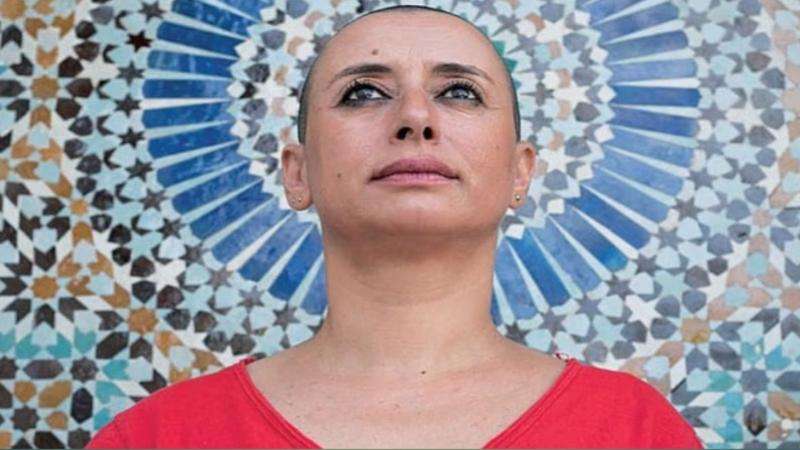As the landscape of Islam in Russia shifts with increasing numbers, a stark reality unfolds within the nation's prisons. Muslim inmates face significant hurdles in practicing their faith, raising concerns about religious freedom and the treatment of minority populations.
After arriving at a freezing Siberian prison in November 2023, Nariman Dzhelyal survived on nothing but bread and gruel.
The bespectacled, bearded Crimean Tatar community leader is a devout Muslim and found that most of the meals he was served contained pork, which is forbidden in Islam.
“I just took bread, which wasn’t of good quality, and ate it with tea,” Dzhelyal told Al Jazeera. He had been sentenced to 17 years in prison for allegedly “blowing up a natural gas pipeline” and “smuggling explosives”—charges that Ukraine dismissed as a politically motivated prosecution orchestrated by the Kremlin. Dzhelyal denied all accusations against him.
A few days after arriving in the bleak town of Minusinsk, his diet slightly improved. Breakfasts consisted of bland, unsweetened gruel, suppers included fish, and only one of the lunch dishes contained pork.
However, diet is far from the most significant hardship faced by the tens of thousands of Muslims in Russia’s notoriously harsh prison system.
For nearly a century, Soviet and Russian prisons have been described as brutal environments ruled by unwritten laws.
Notorious criminals, known as “crowned thieves” or “the black caste,” still bear intricate tattoos, speak in coded slang, and maintain a rigid hierarchy that places them at the top.
Prisons under their control—referred to as “black prisons”—are run with the collusion of wardens, who turn a blind eye to activities like drug smuggling, gambling, and extreme violence.
In contrast, “red prisons” are those dominated by prison authorities. Former inmates and human rights activists have accused these institutions of imposing inhumane conditions, including torture, solitary confinement, malnutrition, and sexual abuse.
Over the past two decades, however, a new force has emerged within Russia’s prison system, with tens of thousands of Muslims convicted of “terrorism,” “extremism,” or other charges.
Muslims make up approximately 15 percent of Russia’s 143 million people and represent the fastest-growing demographic amid an overall population decline.
Their presence in the prison system is proportionally similar—31,000 out of 206,000 inmates are Muslim, according to Russian Mufti Albir Krganov in November 2024.
Russia’s prison population has more than halved since Moscow’s invasion of Ukraine in 2022. However, the number of Muslims who were recruited into the war in exchange for pardons remains unknown.
Human rights groups and media reports indicate that Russian prisoners who convert to Islam are often labeled as terrorism suspects and sometimes have their sentences extended on charges of “extremism.”
“If a convict converts to Orthodox Christianity and gets baptized, he will be celebrated,” said Anna Karetnikova, a former analyst with the Federal Service for Execution of Punishment, the agency responsible for Russia’s prisons.
However, if someone embraces Islam, “he will be flagged as prone to extremism, his prison administration will be penalized, and intelligence agencies will begin monitoring him,” said Karetnikova, who has also worked with organizations overseeing penitentiary conditions, including the Memorial human rights group.
Muslim migrant workers from Central Asia are particularly vulnerable to criminal prosecution due to their limited understanding of Russian language, laws, and customs, according to human rights organizations.
Many have reportedly been coerced into fighting in Ukraine, while others claim they have been falsely accused of crimes by Russian police and prosecutors.
Abdulaziz, a construction worker in Moscow, alleged that police planted synthetic drugs known as “spice” on his younger brother, Abdulmumin, in 2022.
According to Abdulaziz, the police electrocuted and beat Abdulmumin with plastic water bottles—leaving no visible bruises—until he “confessed” to placing drug stashes under park benches.
A judge sentenced Abdulmumin to five and a half years in a prison in the Ural Mountains. However, Abdulaziz noted that his brother was fortunate to have other Muslim inmates for support.
“They proved themselves in prison,” he said, using the slang term “zone” for jail, “so other convicts don’t bother them … The real problem is the guards, but they can be bribed to look the other way.”
Abdulaziz declined to provide his last name or additional details. Al Jazeera was unable to independently verify his claims.
Certain Russian prisons are particularly ill-suited for Muslim inmates.
Rights groups report that some facilities enforce strict schedules prohibiting eating or leaving beds between 10 p.m. and 6 a.m., making early morning and late evening prayers a violation. Observing Ramadan can also be difficult for prisoners.
Nevertheless, there have been efforts to educate prison staff about Islam.
“They need to be taught the fundamentals of Islam and understand the mindset of [Muslim] inmates,” said Azat Gaunutdinov, an ethnic Tatar who converted to Islam while incarcerated and later founded a human rights group focused on defending Muslim prisoners.
“For some, even a simple Muslim prayer is seen as an act of ‘extremism’,” Gaunutdinov told the Kavkazsky Uzel news website in 2020.
Conditions for Muslim inmates in Russia vary from prison to prison.
In Minusinsk, where Crimean Tatar leader Nariman Dzhelyal served most of his sentence, the wardens were relatively lenient.
Dzhelyal and other Muslim prisoners were allowed to pray and observe Ramadan meals in their beds. They also had access to the Quran and Islamic literature from the prison library. This stood in stark contrast to other prisons, where human rights groups report that the Quran and Arabic texts are banned outright, with only select Russian translations permitted.
According to Dzhelyal, some Muslim inmates deliberately avoid engaging in illicit activities behind bars, such as smuggling cigarettes, mobile phones, alcohol, or drugs.
“There are indeed Muslims who say, ‘We don’t follow your criminal rules,’” Dzhelyal said. “Because these rules often conflict with the principles that every Muslim strives to live by.”
The number of Muslim prisoners in Russia started rising in the early 2000s, coinciding with the second war in Chechnya.
As the Kremlin intensified its crackdown on so-called “extremists” in other regions of the North Caucasus, particularly in the ethnically diverse republic of Dagestan, thousands were imprisoned.
Decades later, Russian authorities and prison administrations still have not developed a meaningful approach to addressing the issue, according to analyst Anna Karetnikova.
“There is no real strategy—just a mix of punishment and incentives, without any real effort to understand or develop a long-term plan,” she said.








.svg)



